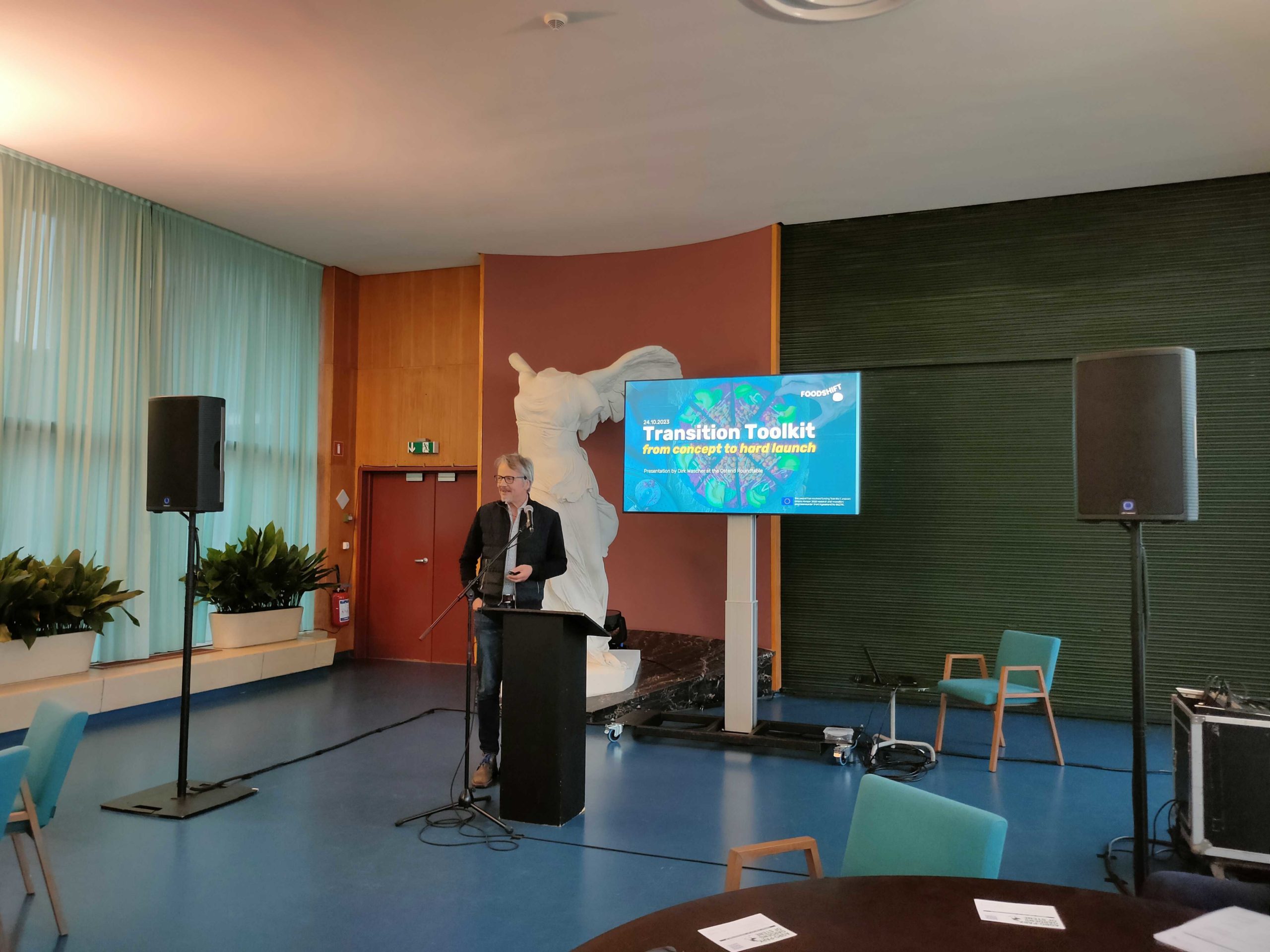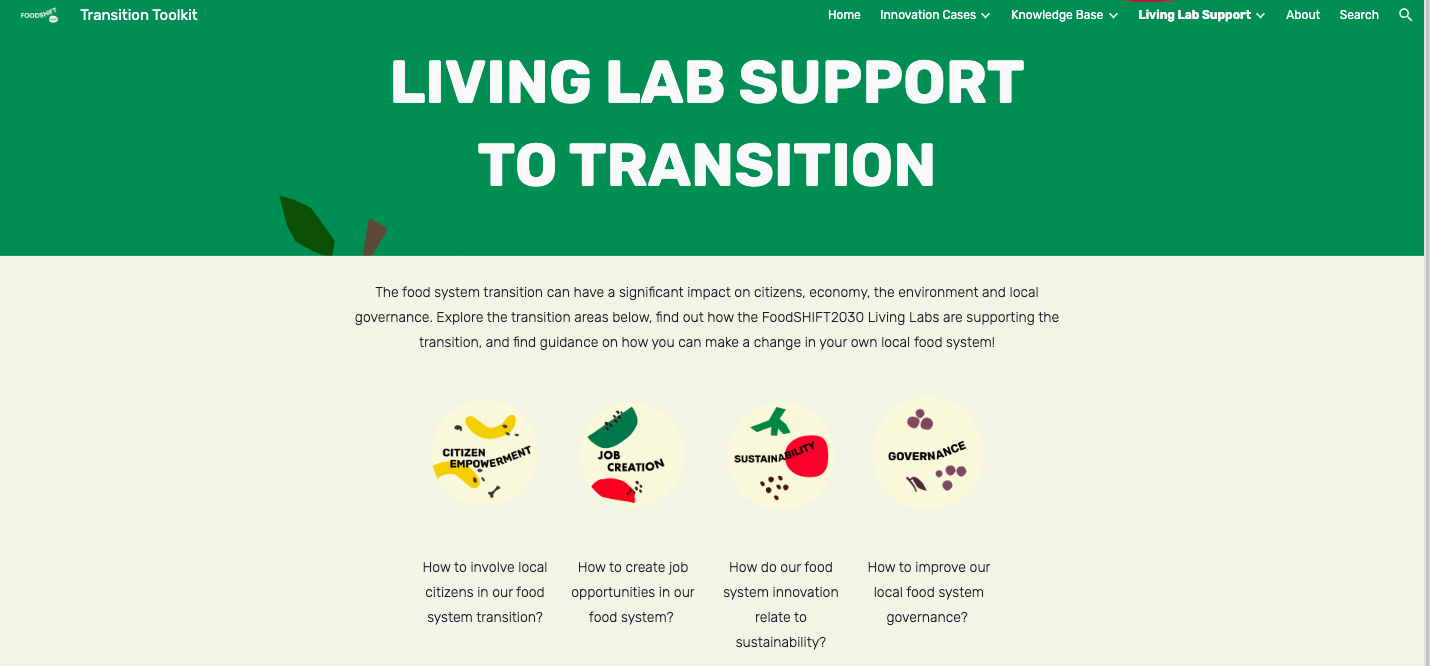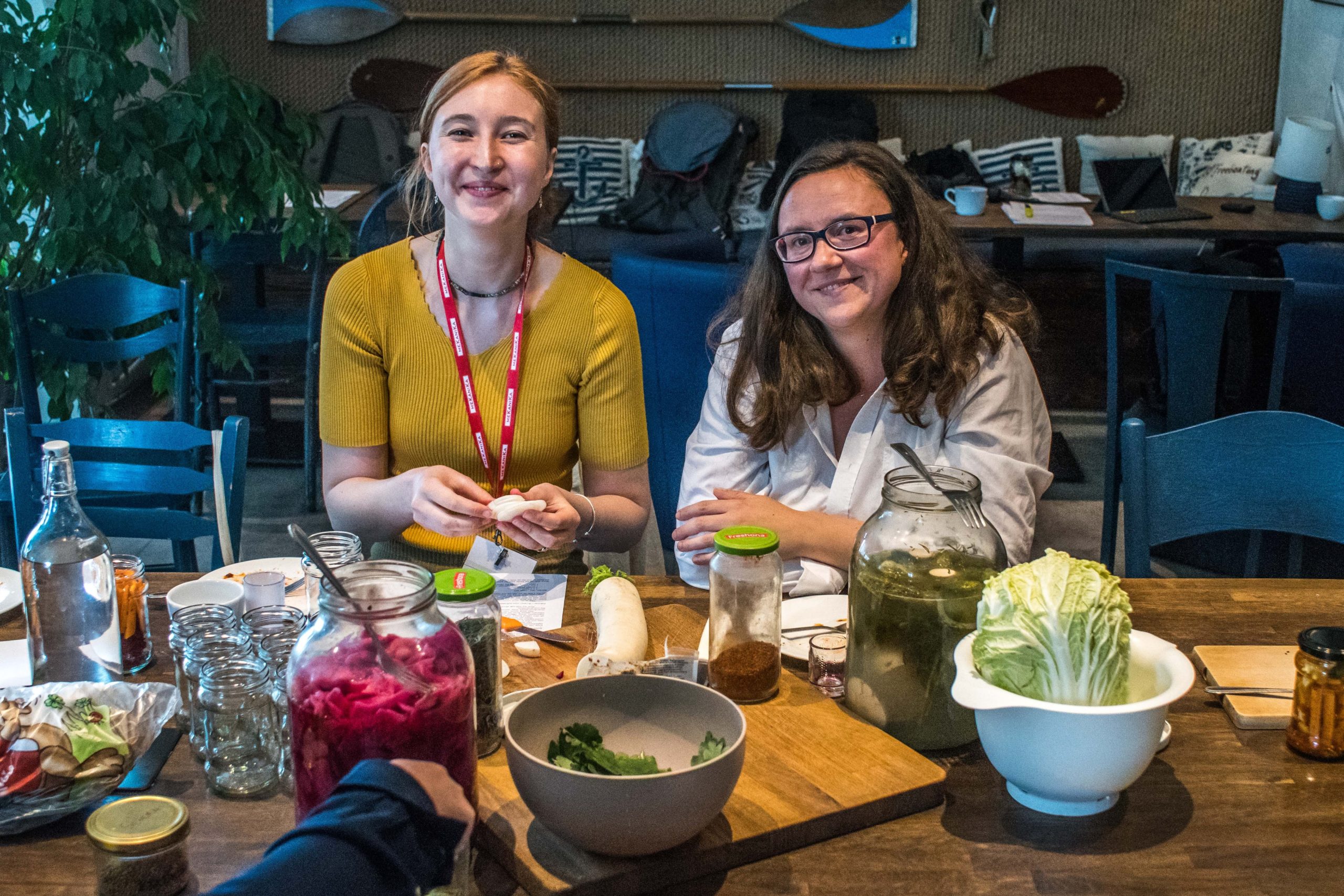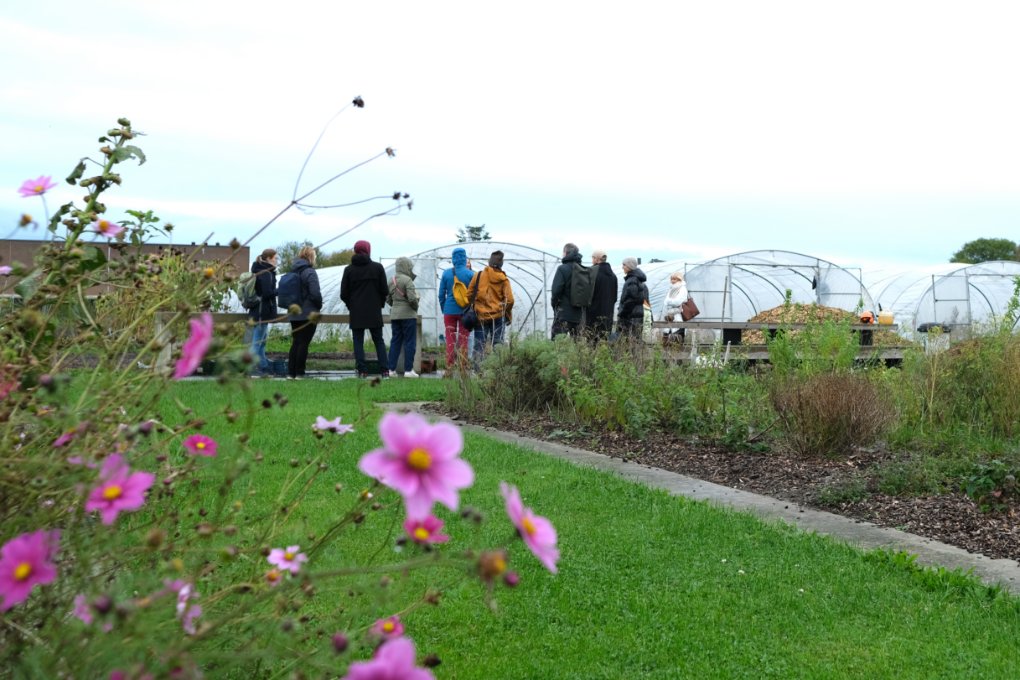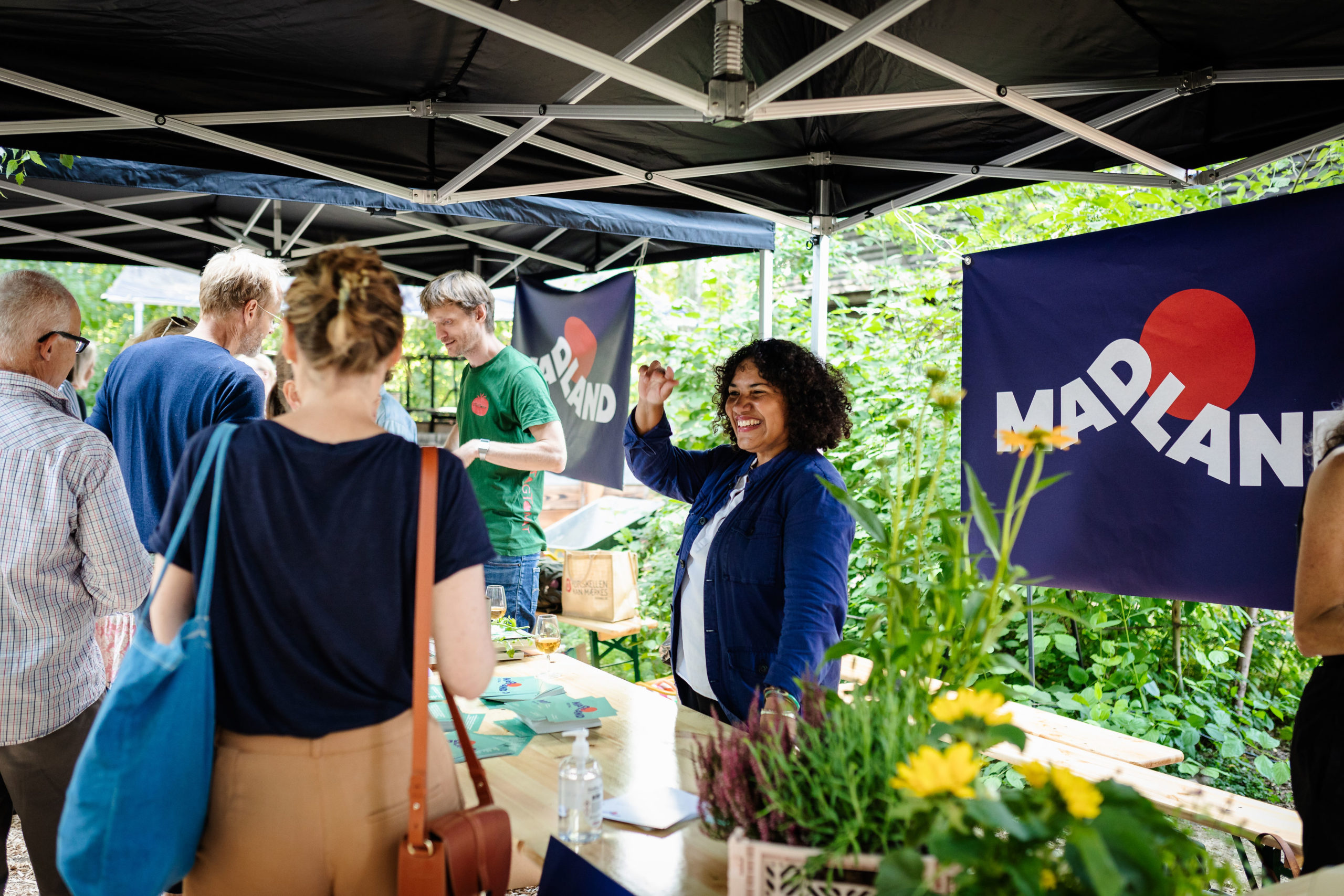Europe meets Berlin
15 November 2021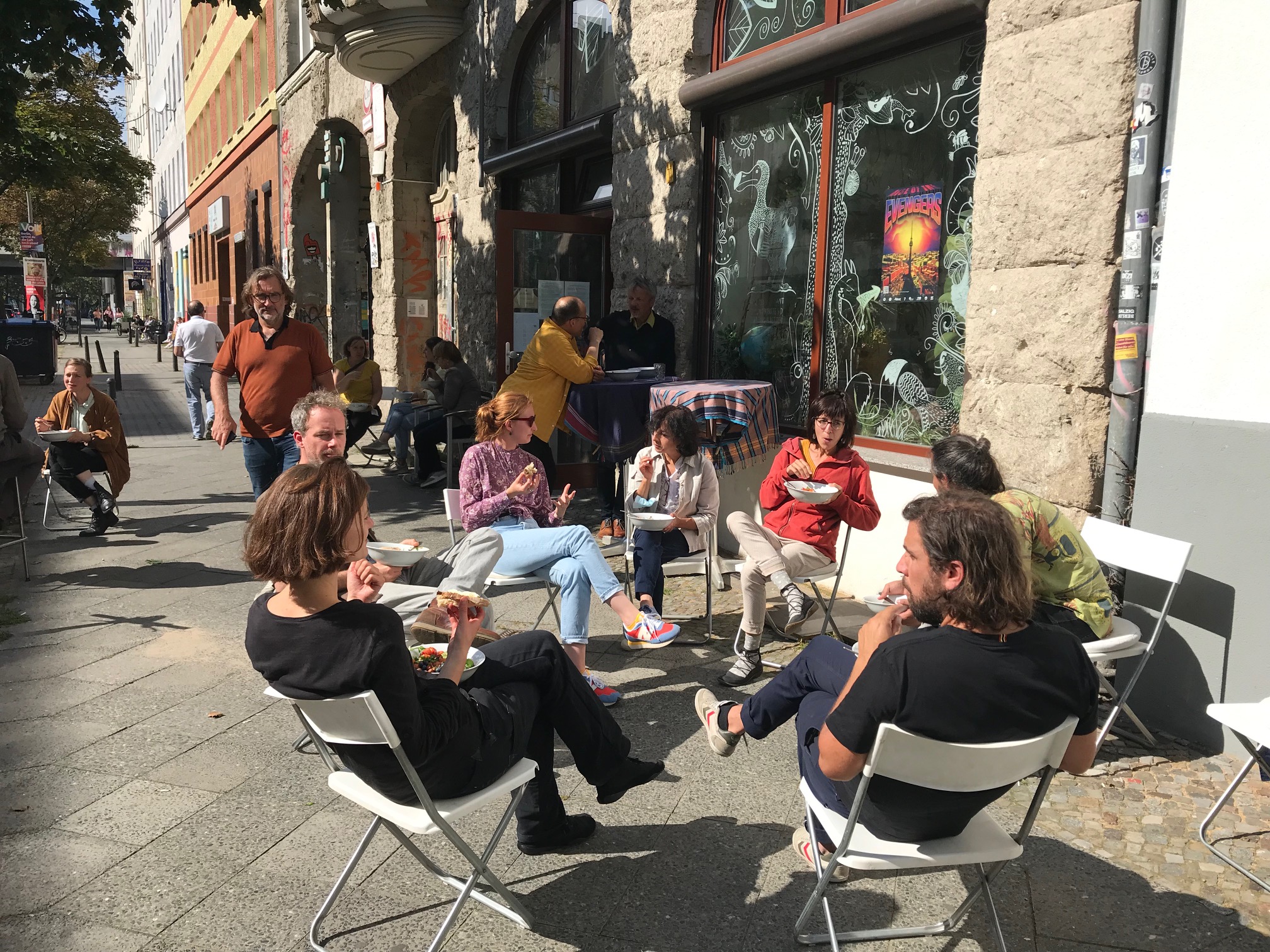
FoodSHIFT partners share knowledge on civic driven actions for a food system change
In recent years, civic-driven action for food system transformation is spurring up across Europe. Within FoodSHIFT2030, partners from 12 European countries built up 9 innovations hubs to co-create sustainable and balanced solutions for food system change.
While food system change is the smallest common nominator between the partners, the goals of the innovation hubs, however, are manifold. While Brasov focuses on linking regional farmers with the urban gastronomy, Avignon embraces healthy public school procurement or Ostend builds up food literacy and healthy communities.
Regardless of the diverse actions, many share similar questions when organizing bottom-up food system change. Many ask themselves: How do we reach out to potential partners and how can we engage with diverse communities? Once people are motivated to join the activities, how do you keep them on board? And how can people be empowered to become active food citizens?
These questions and more were at the core of the showcase event in Berlin on September 1st-3rd 2021.
During the first day, a bike tour led the participants from one local project to another through the winding streets of a former working district in Berlin Wedding. First stop was at the Himmelbeet, a 1.700m2 community garden growing since 2013 on a former parking lot. Today, in 2021, the vibe of a parking lot (not much of a vibe) got transformed into a green between a major road, apartment buildings, and a soccer field. Marion de Simon from Himmelbeet shared stories on the garden’s history, forms of engagement, current activities and struggles, like access to land.Toni Karge from the Berlin Senate joined the discussion on the common struggle to secure access public land for community gardening in the long term.
A different answer to the same questions on community engagement and empowerment was presented by Magdalena Knobel from the Food Policy Council Berlin. Motivated by the premises that everyone should have fair access to a healthy and balanced diet, the project “together at one table” was initiated. Within the project, Syrian and Afghan refugees cook with Berliners and come together at one table to share their stories, cultures and perspectives. Magalenda explains, “sustainable mean different things to different people and to feel included, people need to understand what’s going on on the ground”.
“Understanding” is also of key importance to Gülcan Nitsch founder from Yesil Cember (Turkish: Green Circle), another project presented during the Berlin showcase event. Gülcan’s ambition is to sensitive and engage the Turkish Community in Germany for sustainability issues, like food systems. Gülcan reflects: “If people cannot read or write, than they can still come to our workshops. I do not exclude them. It is my responsibility to create access for these people.”
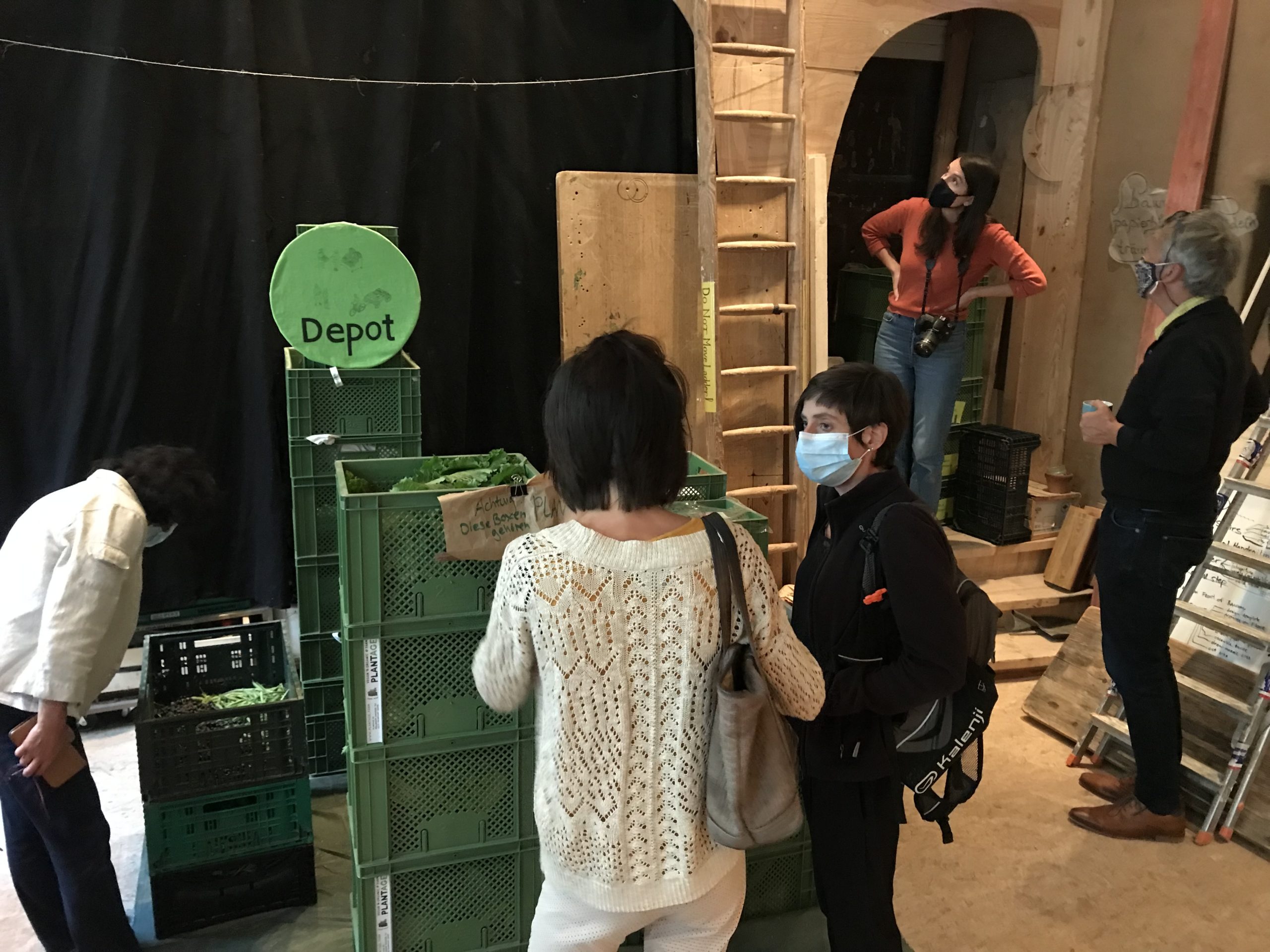
A fourth vignette to community engagement and empowerment was presented by Johanna Kühn, co-founder of SuperCoop, a community-led supermarket. Through early neighbourhood engagement, information exchange and trust building, the SuperCoop succeeded in securing enough collective money to open up Berlin’s first citizen-owned supermarket.
After a deep dive into Berlin’s richness of community-led food projects, the second day of the event was spent with Karen Wohlert and Scott Bolden at das Baumhaus. Das Baumhaus is an open socio-cultural project space for bottom-up sustainability solutions and the home of Berlin’s FoodSHIFT2030 innovation hub. Here, Berlin’s first food hub prototype is being co-created and built up for and with the local community.
During the showcase event, the visiting partners got to be part of the food hub for 1 day. Through hands on engagement, vegetables were sorted and distributed while food was prepared and finally enjoyed together on a long wooden table placed on the sidewalk and decorated with candles. The meal prepared was inspired by the planetary healthy diet, containing mixed herb salads, nuts, and oven roasted carrots and red beet from regional farmers. Smells of cinnamon and freshly baked bread filled the air with a cozy feeling, creating a perfect sense of what a mix of late summer and early fall might taste like.
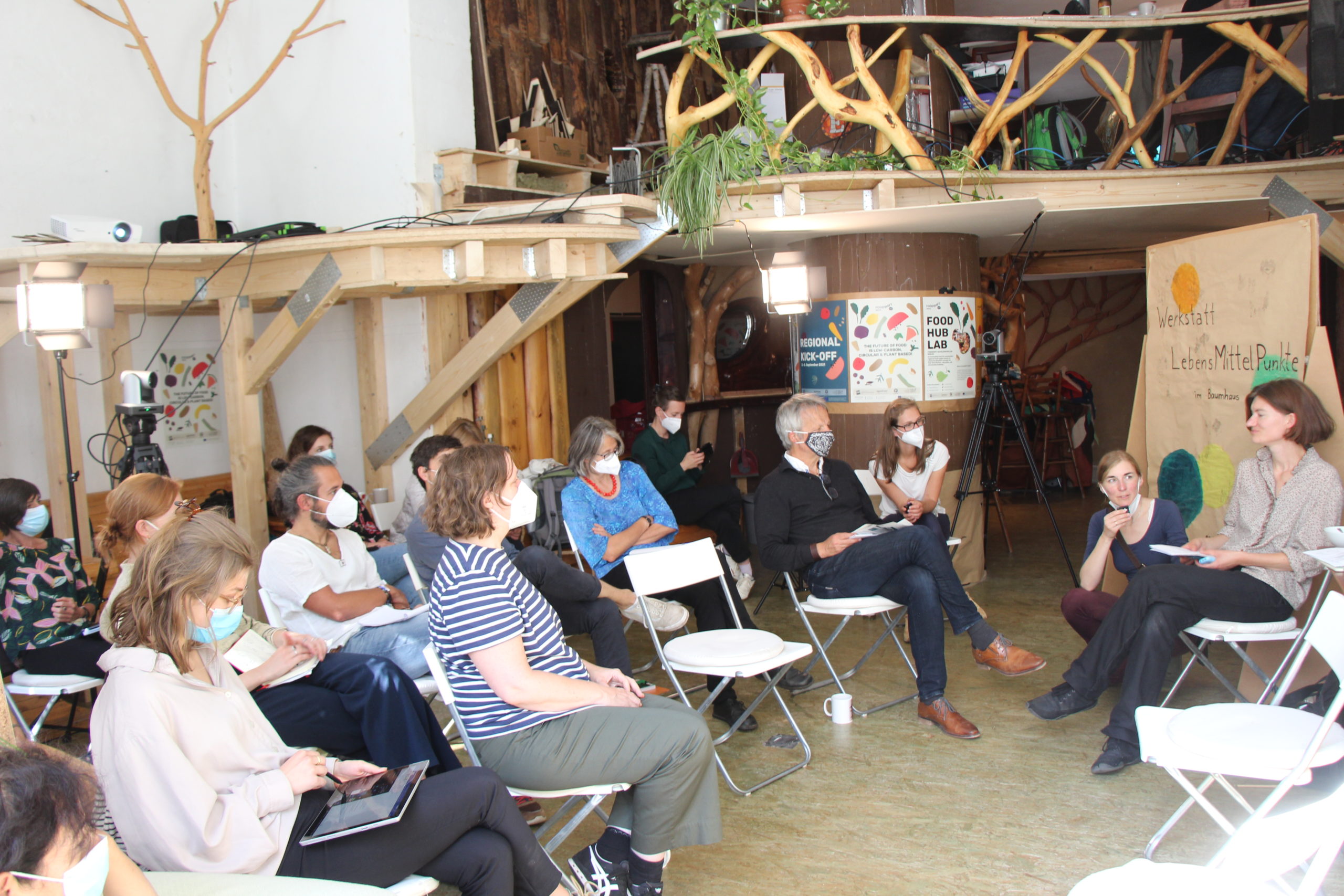
On September 3rd, the conversation on civic actions for food system transformation was opened up to a larger public. The day began with a hybrid panel discussion at the Baumhaus, in which Karen Wohlert (Baumhaus), Christian Bugge Henriksen & Luke Schafer (University of Copenhagen), Beatrice Walthall & José Luis Vicente Vicente (ZALF), Poppy Eyre & Dirk Wascher (Susmetro) and Lisa Haarhoff (Ernährungsrat Berlin) drew a connection between the current climate crisis, the EU project FoodSHIFT2030 and das Baumhaus as a food hub.
Yet, the food hub would not exist without its wider network combining regional farmers, engaged citizens, and people form the local government. Therefore, the food hub network was introduced and represented by Simone Zeil (Ernährungsrat Brandenburg); Johanna Naatz (Auenhof / GemüseSyndikat); Lorena Unger (AG Urban); Ann-Christin Weber (Senate Department for Justice, Consumer Protection and Anti-Discrimination); Julia Scherer, District Office Friedrichshain-Kreuzberg; Annette Jensen (Ernährungsrat Berlin) and Karen Wohlert (Baumhaus Berlin). The Baumhaus was filled with an enthusiastic atmosphere as people from many different walks of life came together to work towards a common goal: Building up just and resilient food systems.
After three action- and knowledge packed days, the participants left Berlin, but took more than just their suitcases with them. Along with many fruitful conversations, the relevance and diversity of inspiring, engaging and empowering people were most certainly among the key messages.
If we want to foster a transformation towards healthy communities and resilient food systems, we rely on each other. Only through the value of mutual support and partnerships can we continue our journey towards a low carbon, plant-based and circular food future.
